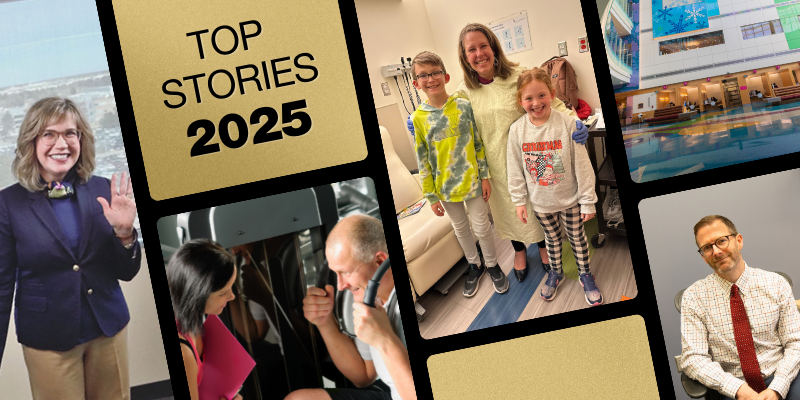Wendy Kohrt, PhD, is stepping away from her long and illustrious leadership role with the Colorado Clinical and Translational Sciences Institute (CCTSI).
To say Kohrt fills many roles at the university is an astonishing understatement. For nearly 40 years, she has been leading high-impact and influential research in geriatrics and integrative physiology. She is Distinguished Professor of Medicine in the Division of Geriatric Medicine at the University of Colorado Anschutz Medical Campus and the Ludeman Center Nancy Anschutz Chair in Women’s Health Research. She is Associate Director of the Ludeman Family Center for Women’s Health Research, Director of Research for Geriatric Medicine, and was the Associate Director of Research or Acting Director for the VA Geriatric, Research, Education, and Clinical Center from 2014 to 2023. Dr. Kohrt is the Chair of the Executive and Steering Committees for the Molecular Transducers of Physical Activity Consortium (MoTrPAC), an NIH Common Fund initiative, and is the Principal Investigator (PI) for one of the MoTrPAC Clinical Centers. She is also the Program Director/PI of a Specialized Center of Research Excellence (SCORE) on Sex Differences supported by the NIH Office of Research on Women’s Health.
Since 2013, Kohrt helped lead the CCTSI as Associate Director and Director of Resources and Services. In this role, she said she enjoyed helping investigators navigate the complex maze of how to conduct clinical research at CU Anschutz.
“Dr. Kohrt has influenced the lives and careers of so many who have worked with her. She is a vigilant advocate for clinical research to improve the lives of all, especially older adults, and her passion for being on the cutting edge of research has led the CTRC to be a premier destination for such work,” said Janine Higgins, PhD, director of operations at the CCTSI.
“Having a seat at the executive table and hearing from senior leaders on this campus about challenges and opportunities, I considered it a privilege,” Kohrt said. “To be able to walk investigators through our extremely rich environment for supporting clinal and translational research….was very fulfilling.”
Over the years, she has led multiple studies in the Clinical Translational Research Center (CTRC), including the exercise research facility that she helped to bring to the university when it moved to the Anschutz Medical Campus in 2007. “I like to understand how systems of the body interact with each other. Because I am a strong believer in the therapeutic benefits of exercise, I encourage research that promotes being physically active,” Kohrt said.
As someone who has been continuously funded by the NIH since 1990, and an investigator who uses the full scope of tools the CTRC provides, Kohrt was the perfect person to lead the Resources and Services pillar that includes the CTRCs. Under her leadership, the CTRC offers the tools to measure energy expenditure and substrate oxidation; bone density and body composition (DXA); physical fitness using a tool called CPET/GXT; and a tool called the HR-pQCT, which assesses bone microarchitecture.
Higgins continued, “I, personally, have learned so much from Dr. Kohrt that I will carry forward to continue her work and her standard of excellence. I am grateful to have worked with her and learn from her over the last 10 years.”
At the end of this year, Kohrt will wrap up her work as Clinical Center PI for MoTrPAC; the project is the largest targeted investment into the mechanisms of how physical activity improves health and prevents disease. She will then continue her work studying the skeletal responses to exercise, and also the metabolic actions of estrogens.
“I have been extremely grateful for the support I received for my research from the GCRC [the name of the NIH program before it became the CTSA award] and the CCTSI,” Kohrt said. “I am grateful to consider Bob Eckel, director of the GCRC, and Ron Sokol, director of the CCTSI, as mentors in how to grow into a leadership position.”
She continued, “By stepping away from the CCTSI, I am stepping away from something that has been very important to me.”


.png)
.png)

-1.png)
